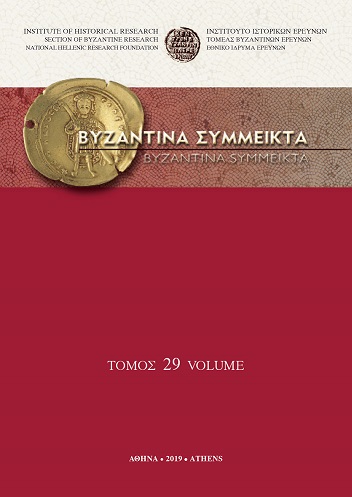Les motifs hellénistiques dans le poème de Léon le Philosophe «Job»
Abstract
Article Details
- How to Cite
-
SÉNINA (Nonne Kassia), T. (2019). Les motifs hellénistiques dans le poème de Léon le Philosophe «Job». Byzantina Symmeikta, 29, 11–24. https://doi.org/10.12681/byzsym.18406
- Issue
- BYZANTINA SYMMEIKTA 29
- Section
- Articles

This work is licensed under a Creative Commons Attribution-NonCommercial-ShareAlike 4.0 International License.
Copyright: The copyright for articles in this journal is retained by the author(s), with first publication rights granted to the journal. By virtue of their appearance in this open access journal, articles are free to use (with the exception of the non-granted right to make derivative works) with proper attribution for non-commercial uses (licence Creative Commons 4.0). NHRF retains the worldwide right to reproduce, display, distribute, and use articles published in BYZANTINA SYMMEIKTA in all formats and media, either separately or as part of collective works for the full term of copyright. This includes but is not limited to the right to publish articles in an issue of the Journal, copy and distribute individual reprints of the articles, authorize reproduction of articles in their entirety in another NHRF publication, and authorize reproduction and distribution of articles or abstracts thereof by means of computerized retrieval systems.



